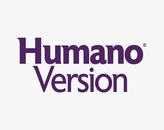
In a spectacle more befitting of a Hollywood thriller than Washington bureaucracy, a standoff is unfolding between two key entities of the U.S. government—USAID, the country’s international aid arm, and DOGE, a newly minted agency spearheaded by Elon Musk to streamline and downsize federal operations.
At stake? The future of foreign aid and America’s geopolitical influence.
>The War on USAID
USAID has long been a double-edged sword. Established in 1961 under President John F. Kennedy, it has been a global force for humanitarian missions—vaccination programs, disaster relief, and educational initiatives. The agency controls a staggering 42% of all United Nations aid. Yet, its track record is riddled with allegations of political meddling, covert operations, and ties to the intelligence community.
USAID has long been a double-edged sword. Established in 1961 under President John F. Kennedy, it has been a global force for humanitarian missions—vaccination programs, disaster relief, and educational initiatives. The agency controls a staggering 42% of all United Nations aid. Yet, its track record is riddled with allegations of political meddling, covert operations, and ties to the intelligence community.
Enter DOGE—short for the Department of Government Efficiency—Musk’s brainchild designed to trim bureaucratic fat. DOGE agents, with the apparent backing of the Trump administration, have stormed USAID’s headquarters, demanded classified files, and even gained control of the agency’s main system, locking out employees.
The goal? To expose what Musk has called a “criminal organization” and dismantle what Trump sees as a radical left stronghold.
>America’s Foreign Aid: Humanitarianism or Political Leverage?
To understand why USAID is under fire, one must look beyond the rhetoric and into its operational history. The agency has a long-standing reputation for intertwining aid with American strategic interests.
To understand why USAID is under fire, one must look beyond the rhetoric and into its operational history. The agency has a long-standing reputation for intertwining aid with American strategic interests.
Syria: The freezing of USAID funds last week led to humanitarian workers being dismissed from refugee camps, highlighting the fragile dependency many nations have on U.S. aid.
Iran, Venezuela, and Georgia: These nations have accused USAID of fueling unrest by supporting opposition groups and civil society movements aimed at regime change.
Cold War Playbook: USAID has often been described as an extension of the CIA, executing covert operations under the guise of philanthropy.
With Musk and Trump leading the charge, the agency’s future looks grim. Nearly 100 USAID employees are already on leave, the agency’s website has been taken down, and its social media presence has vanished overnight. If Trump wins another term, USAID may be folded into the State Department, signaling a slow death for an institution that once dictated the U.S.’s soft power abroad.
The outcome remains uncertain. But one thing is clear: the battle between Musk’s DOGE and America’s aid complex is about more than just budgets—it’s a fight over the very nature of U.S. foreign policy.
Does the U.S. continue using aid as a tool of influence, or does it retreat into isolationism? As this high-stakes showdown unfolds, the world is watching.



